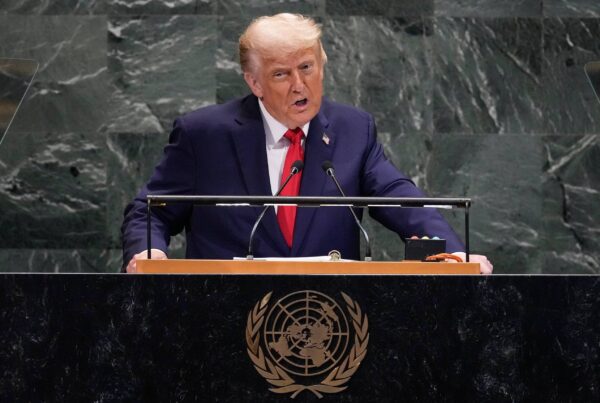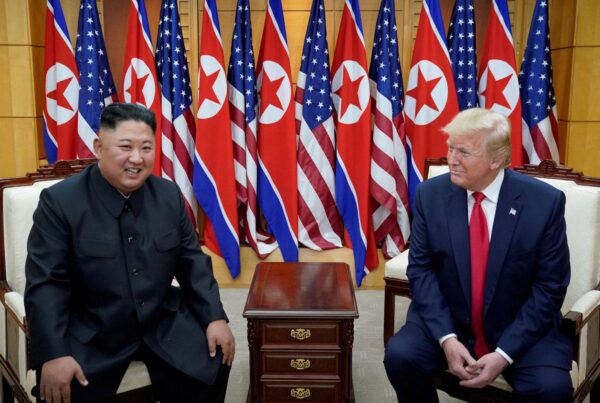Google has acknowledged in an official letter that senior officials from the Biden Administration repeatedly pressured the company to take down Covid-related content from YouTube, even when that content did not violate its policies. This disclosure has reignited debates over the role of government influence in content moderation, drawing comparisons with previous controversies during the Trump era. The revelation highlights how both sides of the political spectrum have used pressure tactics, albeit in different ways, raising critical questions about free speech and the independence of private platforms.
The issue resurfaced when Alphabet, Google’s parent company, sent a detailed letter to House Judiciary Chairman Jim Jordan. In the correspondence, the company admitted that Biden officials engaged in “repeated and sustained outreach” urging Google to remove or restrict content concerning the Covid-19 pandemic. According to Alphabet, the pressure campaign created an atmosphere where the government sought to shape private moderation policies. This acknowledgment represents one of the clearest statements to date from a major technology company regarding the extent of political involvement in its operations.
While the Trump Administration had previously drawn criticism for openly targeting media personalities like Jimmy Kimmel, the Biden strategy was more subtle and hidden from public view. Critics argue that this makes it even more insidious, as it concealed the extent of government pressure from the public while leveraging corporate compliance to limit controversial speech.
Government Pressure on Big Tech
The relationship between government officials and technology companies has long been a subject of scrutiny, particularly when it comes to questions of free speech and content moderation. During the pandemic, public health concerns became a justification for greater involvement by the White House in shaping online narratives.
Alphabet’s letter acknowledged that officials from the Biden Administration consistently pushed the company to regulate content more aggressively. The company admitted that some of these requests targeted user-generated videos that did not breach YouTube’s community guidelines. Despite this, the administration insisted on intervention, citing the risks of misinformation.
The statement from Alphabet was notable in its tone. While it stopped short of admitting liability, the company stated that “it is unacceptable and wrong when any government, including the Biden Administration, attempts to dictate how the company moderates content.” This amounted to a rare public rebuke of government influence, raising new concerns about the extent to which private companies can maintain independence under political pressure.
The Role of the Biden Administration
Reports indicate that senior Biden officials went beyond formal requests, engaging in direct calls and communications with Google’s teams. These exchanges were described as sustained and intense, reflecting the urgency the administration placed on controlling Covid discourse. The justification often invoked was the need to combat dangerous misinformation that could undermine public health efforts, such as vaccine uptake and adherence to preventive measures.
However, critics argue that the scope of these demands exceeded reasonable boundaries. Some flagged content included satire and humor, which traditionally fall within the protections of free expression. The White House’s approach, therefore, raised questions about whether the government blurred the line between combating misinformation and suppressing dissenting opinions.
Adding to the controversy, the pressure was not limited to Google. Meta CEO Mark Zuckerberg revealed in a 2024 letter that the administration also pressed Facebook to remove similar content. Zuckerberg even admitted in an interview with podcaster Joe Rogan that officials would call and “scream at” Facebook employees, demanding immediate compliance.
Involvement of CISA
The Cybersecurity and Infrastructure Security Agency (CISA) was also drawn into the controversy. According to a 2023 Judiciary Committee report, CISA had begun flagging posts for disinformation as early as 2020. The report alleged that when legal challenges mounted, the responsibility was outsourced to a nonprofit funded by CISA, effectively outsourcing censorship to avoid direct accountability. This tactic raised alarms about whether government agencies were using intermediaries to bypass constitutional limits on restricting speech.
These findings reinforced concerns that government pressure extended beyond informal phone calls. Instead, it appeared part of a more structured approach to influence how online platforms handled politically sensitive issues, especially during the pandemic.
Double Standards in Political Censorship
Observers have noted striking double standards in how different administrations’ actions are perceived. When Donald Trump attempted to silence critics such as late-night host Jimmy Kimmel, the backlash was immediate and widespread. Media outlets and advocacy groups highlighted the dangers of government overreach and the erosion of press freedom.
In contrast, Biden’s efforts to influence Big Tech remained largely shielded from public attention until recent disclosures. This discrepancy has fueled accusations that progressives have avoided self-reflection when it comes to their own use of power. Critics argue that ideological bias has influenced which censorship campaigns receive scrutiny, with left-leaning interventions downplayed or ignored.
The issue is compounded by the fact that many technology companies are perceived to lean politically liberal. As a result, some argue that these firms were more willing to comply with Biden’s demands than they would have been with Trump’s. This perception undermines trust in platforms’ ability to remain neutral arbiters of online discourse.
Comparisons with Trump’s Approach
While Trump’s tactics were more open and confrontational, Biden’s were described as quiet but persistent. This divergence in style complicates public perception of government influence. One approach sparked outrage because it was visible, while the other drew less attention precisely because it was less transparent.
The lesson, critics say, is that censorship by any administration—whether overt or covert—should be viewed with equal concern. Both represent attempts by the government to shape the boundaries of public debate, raising constitutional and ethical dilemmas about freedom of expression.
The Broader Impact on Free Speech
The cumulative effect of government involvement in online moderation has been a chilling effect on speech. Users became more cautious about posting Covid-related content, fearing removal or deplatforming. In some cases, this included discussions of scientific uncertainty, alternative theories, or critiques of official policy.
This has sparked debates within academia, journalism, and policy circles. Some argue that limiting harmful misinformation during a health crisis is a legitimate function of government. Others counter that democracy requires tolerance for a wide range of perspectives, even when some prove inaccurate or unpopular.
Alphabet’s Commitment Going Forward
In its letter to Congress, Alphabet made an important pledge. The company stated it “has not and will not empower fact checkers to take action on or label content across the company’s services.” This assurance marked an attempt to distance itself from the perception of bias and restore trust among users.
Critics, however, question the timing. The disclosure came after the 2024 elections, raising suspicion that the company delayed its admission until the political landscape shifted. This timing fueled skepticism that Alphabet’s statement was motivated less by principle and more by expediency.
The company nevertheless expressed a clear principle: moderation decisions should not be dictated by government officials. Whether it can maintain this stance under future political pressure remains uncertain.
Rebuilding Public Trust
To rebuild trust, experts suggest greater transparency in how moderation decisions are made. This could include publishing detailed reports on government requests and clarifying the criteria used to remove or restrict content. Without such accountability, critics argue that pledges of independence will ring hollow.
Public trust in Big Tech is already fragile. Allegations of censorship, whether accurate or exaggerated, risk further eroding that confidence. Restoring credibility may require both structural reforms and cultural shifts within companies like Google and Meta.
Implications for Future Administrations
The controversy raises important questions for future administrations, regardless of political affiliation. If government officials continue to pressure platforms, companies may struggle to resist, particularly when public health or national security concerns are cited. Establishing clear boundaries and legal safeguards may be necessary to prevent abuses of power.
Legal challenges are already shaping this debate. Courts are increasingly asked to consider whether government involvement in content moderation constitutes a violation of First Amendment rights. The outcome of these cases could reshape the landscape of online speech for years to come.
As the revelations from Alphabet and Meta continue to unfold, the broader debate over censorship, free speech, and government influence shows no signs of fading. The controversy underscores how fragile the balance is between combating misinformation and preserving open discourse in democratic societies. While Alphabet’s recent letter signals a move toward greater independence, critics remain skeptical until concrete actions follow. For now, the episode stands as a cautionary tale of how political pressure can distort the digital public square. Readers interested in exploring related issues can continue with in-depth coverage on Olam News.






